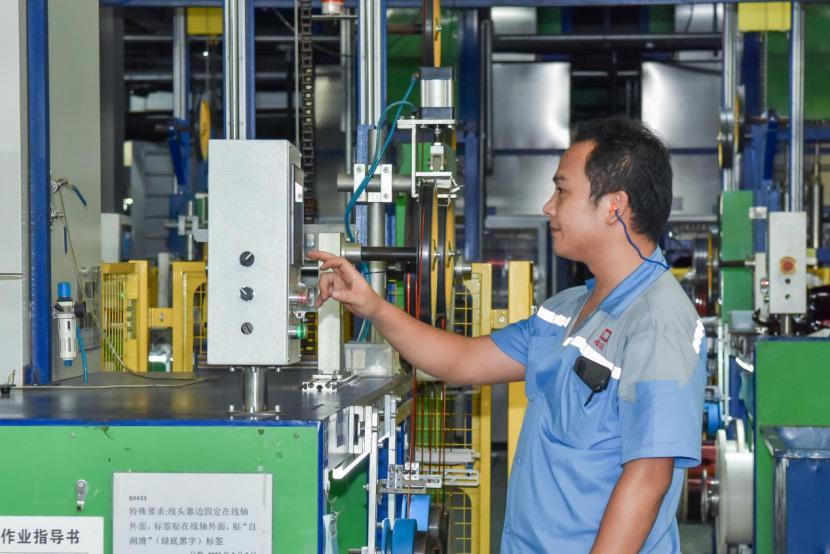Innovation boosts Tongling's copper industry


A copper powerhouse in Tongling, city in East China's Anhui province, is transforming its copper industry through innovation.
In 2024, Tongling's copper industry generated a revenue of 323.8 billion yuan ($45.2 billion), including 135.8 billion from subsidiaries elsewhere. This accounts for about 10.8 percent of China's total copper industry revenue.
The city is driving its copper-based materials sector toward high-end, smart, and sustainable manufacturing, building a globally competitive copper cluster with significant gains in scale, investment, and technology.
Tongling Jingda Special Magnet Wire exemplifies the sector's shift.
"Now our core products – copper- and aluminum-based electromagnetic wires, and specialty conductors are essential for electric vehicles, solar power, AI, defense, nuclear fusion, and 5G," said Qin Bing, general manager of the company.
Qin emphasized the future path, "We will use scientific innovation to extend our industry chain into higher-value products and solidify our leadership."
Su Baoxin, director of the lab of the electromagnetic wire research institute, traced the company's technological journey.
"It evolved from home appliances to industrial electrical equipment, and now supplies critical new energy and national defense projects. This progress is built on persistent innovation," said Su.
TongLing Nonferrous Metals Group Holdings is also actively adopting new technologies. It uses the internet, big data, and artificial intelligence to boost smart manufacturing across production, management, and services.
At its Jinguan Copper unit, the introduction of new technologies and equipment has enhanced efficiency and output. "This not only improves productivity but also significantly enhances the working environment and employee well-being," said Yang Xiongwei, assistant to the director of electrolysis workshop.
By combining its rich industrial heritage with cutting-edge science and digital transformation, Tongling is forging a smarter, greener, and more competitive future for its copper industry.
Pan Shaokang contributed to this story




































